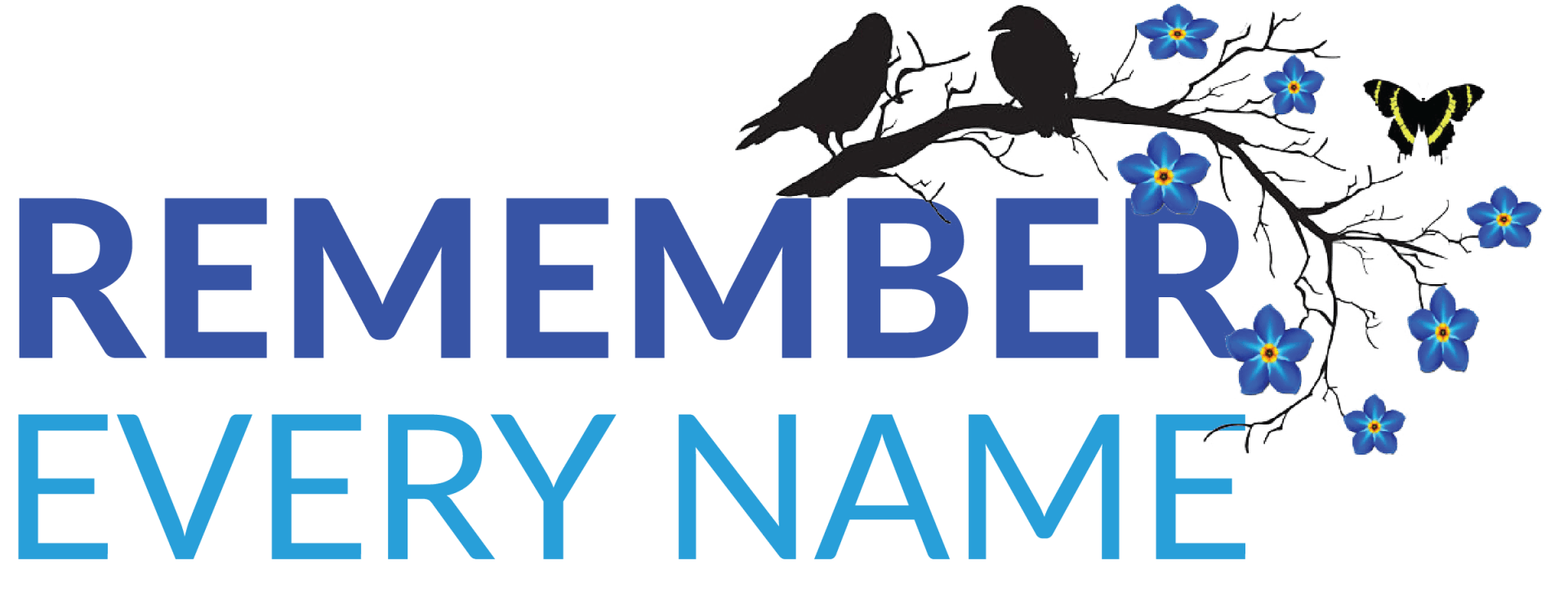The improvements to Huronia Regional Centre cemetery that will take place this summer without recent input from the survivors who lived at Huronia will be another example of neglect and abuse committed against them by the government.
That's how Remember Every Name representative Debbie Vernonand Marilyn Dolmage (the litigation guardian who supported the Huronia class action’s lead plaintiffs Pat Seth and Marie Slark) reacted earlier this week after receiving a letter and site plan from the Ministry of Community and Social Services.
Remember Every Name is a committee group of Huronia Regional Centre survivors and community members. For the past two years, Remember Every Name has been concerned that graves were disturbed when a sewage pipe was dug through the middle of the cemetery’s burial area.
Vernon and Dolmage believe the improvements are an attempt by the government to cover up what has taken place at the cemetery.
“Survivors will be extremely distraught. Far from closure, this is opening all the wounds,” said Dolmage.
In the letter from ministry Director Christine Kuepfer dated July 21st, Vernon was advised that the work will begin this summer and wrap up by the fall, and will include the instillation of paths, row end markers and benches.
The letter went on to thank Remember Every Name “for providing the valuable recommendations on which the Site Plan is based,” and stated that the government “remains committed to honouring and protecting the memory of all former residents, helping tell their stories and ensuring that the lessons of this time are not lost.”
Click here
to read the letter to Remember Every Name and
click here
to read a similar letter addressed to Community Living Ontario Chief Executive Officer Chris Beesley.
Dolmage and Vernon have major concerns with the site plan, which went out for tender this week.
Click here
to view it.
In July of 2015, Remember Every Name began to ask questions when an archeology report left out any consideration of septic tanks in the cemetery. In a letter to Premier Kathleen Wynne, the group called for an investigation into the exact location of the pipe and whether graves were disturbed.
Representatives from Remember Every Name fear that as many as 150 graves were disturbed when a sewage system was installed in 1952, leading from farmhouses to tanks in the southwest corner of the cemetery. Vernon said locating company Terra Discovery has confirmed that the pipe is in fact a sewage pipe. She has attempted to obtain a copy of a report to determine the exact location of the pipe, without success.
Dolmage noted that the new plan calls for markers to indicate the ends of 32 rows of either unmarked graves or graves marked with registration numbers for some of the former residents that are buried there. However, last year the Ministry gave Remember Every Name a report showing that 31 rows were confirmed using ground-penetrating radar.
Click here
to read the report.
She also pointed out the 2016 report referenced a wide space between rows 24 and 25, much wider than anywhere else with no burials. During a meeting between the Ministry of Community and Social Services and Remember Every Name last July, ministry officials asserted that the pipe went under an old laneway located between rows 24 and 25 and maintained that no graves had been disturbed. A wide space between the two rows is not indicated on the site plan provided this week.
“Right in the spot where they told us the pipe was and where this laneway was, there is now going to be a row end marker showing a row of graves…So, a whole row of people has materialized. How can you believe anything?” said Dolmage. “This site plan is an attempt to make it look like a very orderly cemetery, which it was not.”
Dolmage also pointed out that the site plan calls for a portion of sidewalk to jog out further south than the rest, speculating that the contractor who will undertake the work won’t have to excavate where Remember Every Name believes the sewer pipe is located.
“It looks like they propose to write names on the 32 row end markers on that side, a list which can only be fabricated based on what they’ve told us,” said Dolmage.
Vernon and Dolmage said ministry officials told them they didn’t know who was buried in each row. They believe the ministry’s motive behind the improvements is to reassure the people of Orillia that “‘We’re being respectful, we’re doing what we need to do here.’”
While the plan calls for markers and other items to beautify the cemetery, it does not include an area for a memorial that survivors want to have designed, commissioned and installed at the site.
Vernon said Remember Every Name refused to consider a draft cemetery design plan last year because they were so frustrated when the ministry would not - first - answer their questions about the government report regarding the septic system.
There has been no contact from the Ministry of Community and Social Services with representatives from Remember Every Name in more than a year.
"[The government] has just jumped way ahead,’” said Dolmage. “What the survivors have said all along is ‘Nothing about us without us. Don’t make this plan without involving to us.’”
“We won’t be any part of this,” said Vernon, bluntly. “They’ve already told us what they’re doing and that’s it. We have no further input.”
Still, she sees the news of the cemetery improvements as an opportunity for others to assist Remember Every Name.
“I think survivors are feeling alone on all of this, so if there are people out there that will rally behind us and help us let the truth be known. We need help.”
Remember Every Name and its allies intend on meeting soon to determine what steps to take moving forward, including the erection of a memorial on the cemetery site.
Ron Laroche, Community Living Ontario

